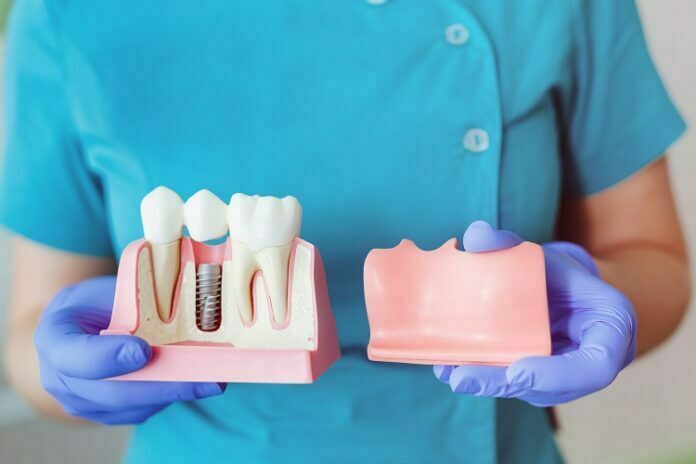If a patient has lost one, or several, of their natural teeth, a dentist is likely to strongly suggest replacing these missing teeth in one way or another in order for the patient to retain their overall health and well-being.
It is crucial for people to replace their missing teeth because teeth are designed to work together, therefore serious complications with a person’s bite, speech or other issues can arise if not rectified as quickly as possible.
Dental implants in Melbourne are usually the first option for most patients. They are the most successful, offer solutions for the greatest range of varying patients and have a very long duration of wear, several decades in most normal situations. Dentists feel confident in being able to provide their patients with the results that they are looking for and there are very few complications that cannot be foreseen and dealt with in a timely and appropriate manner.
Success rates vary depending on the patient, the location in the jaw of the procedure and the aftercare and attention given to the site over the subsequent weeks and months after the procedure has taken place. But generally speaking, up to 99% success rates are observed and, with proper care, the treatment can last a lifetime. Get detailed information about the best practices to take care of your artificial teeth, on this website: https://newshub4.com/
What does the procedure entail?
It is important to understand what exactly the difference is between this treatment and others that are available to a patient. A dentist will go through the advantages and potential risks or concerns that might be associated with every treatment option, giving their patients the opportunity to decide for themselves what they believe to be the best overall option for them.
Only with accurate and personalized advice can a patient make an informed decision as to whether this treatment will be suitable for them.
The treatment plan begins with a thorough inspection of the mouth and jaw to ensure that the patient is indeed suitable for the treatment. In some cases, patients who do not have the kind of robust health required to undergo the minor surgical procedure will be advised on alternative options.
Also, if a patient has had dentures or missing teeth for long periods of time, their jaw bone may have receded. This requires additional treatment to prepare the mouth and jaw for the actual tooth implant.
On the day of the procedure, a titanium rod is surgically inserted into a precise location in the jaw to replicate an original tooth root. From this, a natural-looking and feeling crown or bridge can be attached to create a fully functional and natural-looking smile.
It can take several weeks to heal and many more months to judge whether the treatment has been a complete success. This is because the titanium material gradually fuses with the bone and other soft tissues to create a permanent structure within the body.
During this time, it is essential that patients take the appropriate measures to ensure the cleanliness of the site and that they follow the directions of their dentist precisely to limit the chances of infection or rejection.
Any surgical or invasive procedure carries risks. Before proceeding you should seek a second opinion from an appropriately qualified health practitioner.











